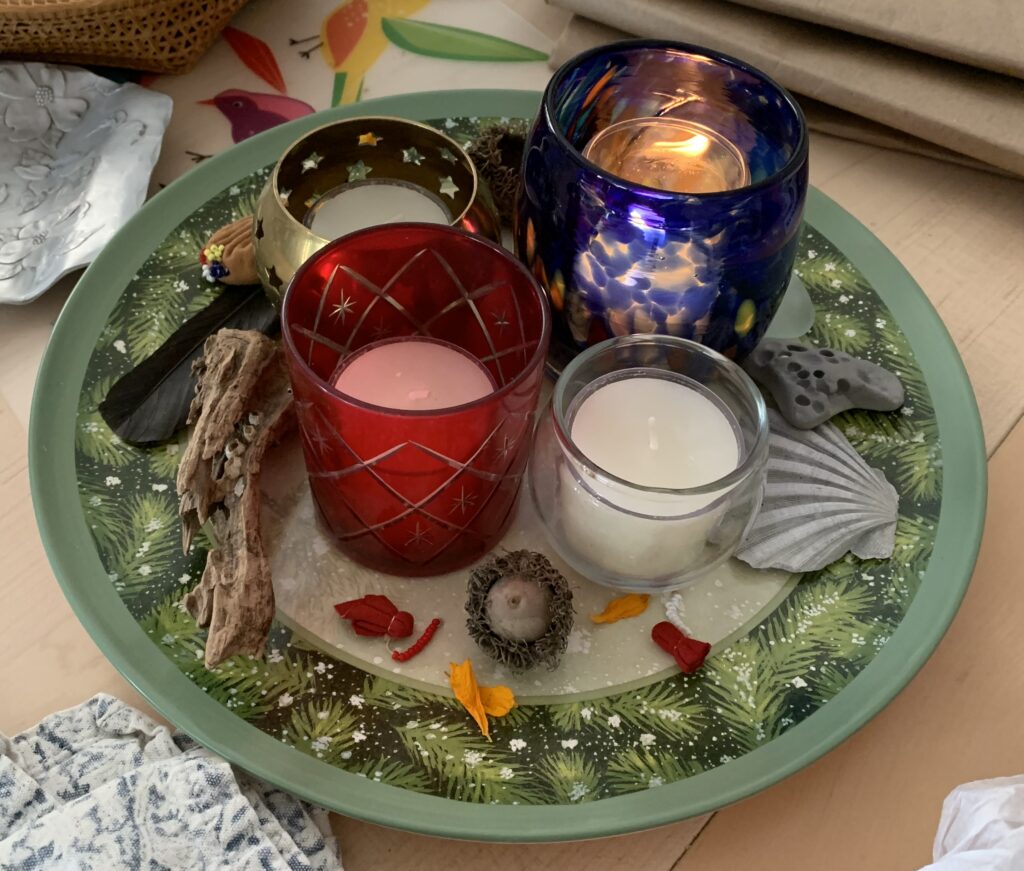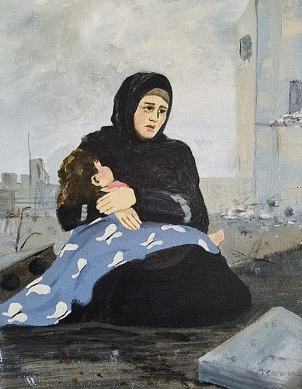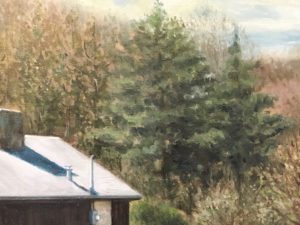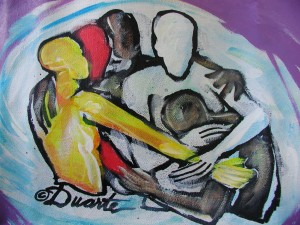Who knew that a tiny moth larva could turn my house upside down? Emptying, scrubbing, and bleaching that one, packed closet and reevaluating which items I wanted to keep took all day. Rearranging what remained led me to take a closer look at other closets, cupboards, and storage bins in the basement. More cleaning, trips to donation centers, and filled trash bags.
A couple of days before Advent, my house was still a disaster. I began the morning with quiet time, determined to make mental and physical space for the simple practice. There I was, sitting in my favorite meditation space, unable to stop thinking about what cleaning task to tackle next. Of course, thoughts always bounce around in one’s head during quiet prayer time. The practice is not about keeping all thoughts out but in acknowledging them and letting them go. That morning each thought came with an irresistible hook, and before I knew it, five or ten minutes filled with imagined schedules and jobs had passed.
No surprise, then, that Advent arrived with no room on my table for an Advent wreath. “Surely,” I thought, “if I work hard enough, the table will be clean by day’s end.” Not so much. My choice: wait for another day, or two, or three, until the table was straightened up and ready or push enough stuff around to place the wreath in the center.

So, when evening arrived, there it sat, in the middle of the mess
As I watched the first of four candles flickering in the handblown glass, the appropriateness of the setting suddenly became apparent. If Advent is a season of waiting and watching, it is of waiting, watching in the middle of a mess. Isn’t that where I encounter the Holy One anyway. From right where I am?
I can imagine myself organized. (Well, that is a stretch!) “Doing” the social action stuff that calls out for people to be involved. Writing all the letters. Making all the calls. Someday I’ll be on track, reading the books on my list of important reads. I’ll paint more. Write more. Eat healthier. Never miss a day of exercise. I can imagine… But really? Maybe one at a time. But all at once? Not likely.
If I had to wait until everything was just right, from my house (spiritual and physical) to the world order, I’d never be open to the Sacred. I’d miss out on the transformative encounters that offer themselves every day, every place, every minute. Isn’t that the meaning of the Incarnation? The Holy One meeting us right where we are?
Persistent Love trusts that eventually, there will be moments when I’m particularly receptive to the gift of Divine Self always being given. Even when I’m not aware, Grace seeps through cracks in the shell of busyness, fear, and doubt that often encase my heart. The Holy One finds a way to be with, as promised … always.







